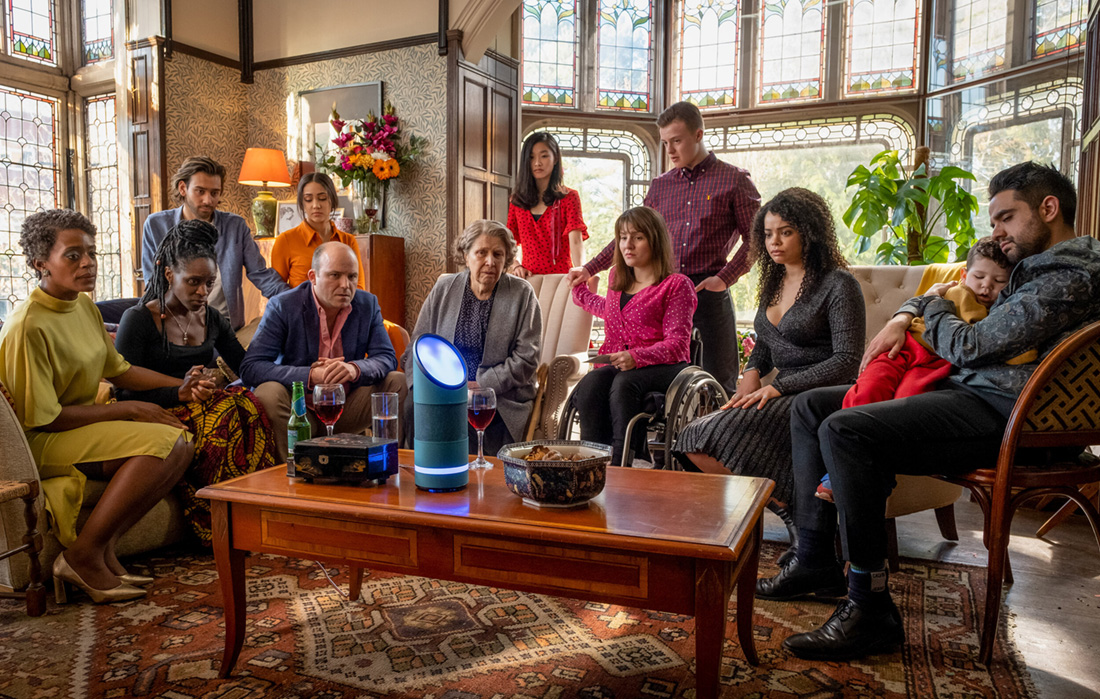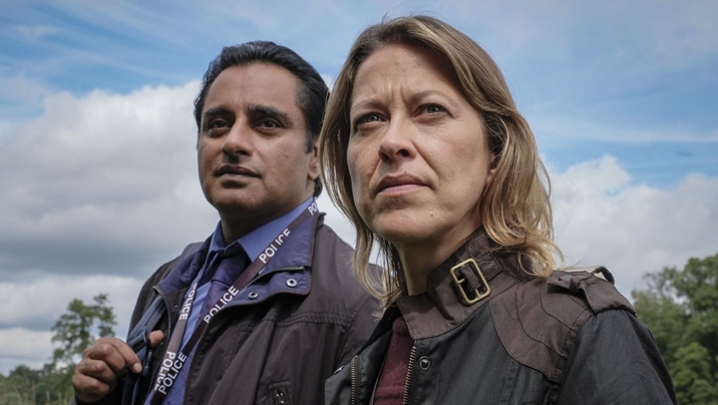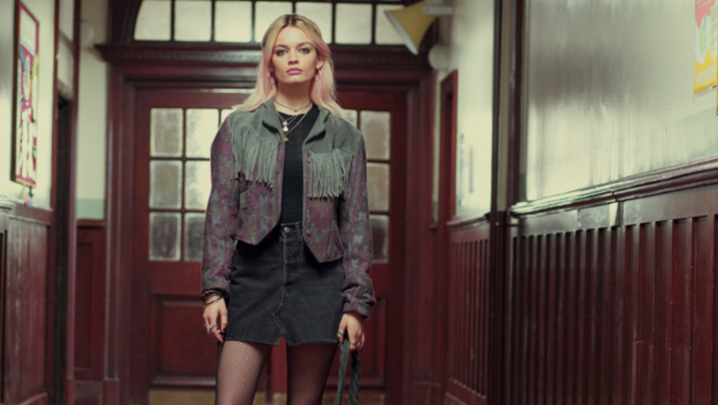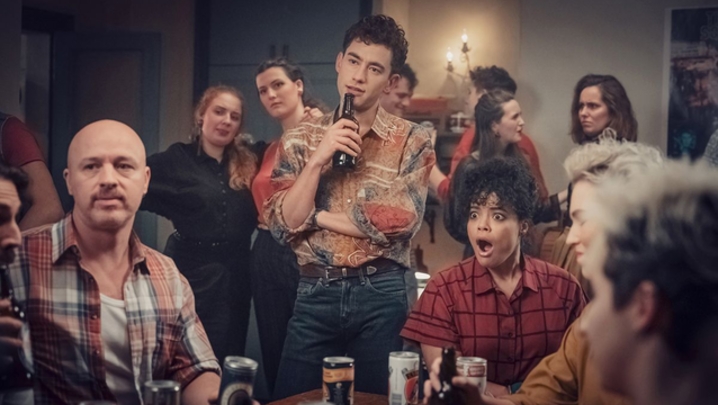Media grandees assess how the UK’s public service broadcasters are responding to the streamers’ success.
At first glance, the outlook looks less than sunny for traditional broadcasters faced with competition from Netflix and the other streamers. Dig a little deeper and the situation looks a lot more nuanced.
That was the main takeaway from the second of two Steve Hewlett Scholarship debates, “British broadcasting in crisis?”, organised jointly by the RTS and Media Society.
A panel of heavy hitters – ITV Chair Peter Bazalgette, ex-BBC and The New York Times supremo Mark Thompson, and Janine Gibson, assistant editor at the FT – responded to an introduction by the analysts’ analyst, Claire Enders.
She set out some potentially alarming statistics for the old guard who are all attempting to up their digital game.
Enders said that, so far during the pandemic, aggregate UK viewing of online services had increased by almost 100%. The stampede to the D2C (direct to consumer) players was most pronounced in the under-40s. “The launch of Disney+ in the spring was the most successful the UK has ever seen,” she noted.
The “insatiable demand for high-quality drama” had put Netflix in the driving seat and “overwhelmed” the ability of UK PSBs to match the streamers’ investment in shows such as The Crown and The Queen’s Gambit.
“PSBs were [already] struggling to meet audience demand for fresh material,” continued Enders. “For the past decade, it had been a race to the top for drama.”
Netflix recently announced that it would invest $1bn in the UK next year. This avalanche of funding was making life difficult for the PSBs, as “every part of the production chain” was affected by global inflation, not least talent and screenwriters.
Drama budgets had risen to as much as an astonishing $10m an hour. Thankfully for the PSBs, drama accounted for only 20% of their aggregate viewing, concluded Enders.
Bazalgette described the streamers as “frenemies”. They were important customers for UK producers – including ITV Studios. Netflix was ITV Studios’ second biggest customer after ITV itself. The ITV Chair noted that it was important to draw a distinction between Netflix and Amazon; the former was a service, he said, while the latter was a platform.

where we are headed (credit: BBC)
He continued: “The real threat to British broadcasters is the supranational monopolies that own platforms that, in the future, wish to be aggregators of content. We need to get our signal and programmes distributed on a fair basis with reasonable returns.”
While the streamers were clearly outspending companies such as ITV, it was important to remember that British broadcasters produced far more hours of content than Netflix and other D2C companies.
Thompson made the point that, thanks to the streamers, “money was pouring into the UK”. This was boosting British talent and production in a way that would have seemed impossible a decade ago.
The problem for UK broadcasters was that they lacked both the capital and the algorithms controlled by the American companies.
But, despite these advantages, the shows that the streamers commissioned tended to contain a narrow focus, claimed the ex-BBC Director-General. He said: “Someone looking at the UK from outside could be forgiven for thinking that everything happens either in Buckingham Place or Hogwarts.”
This romanticised view of Britain, long perpetuated by Hollywood, excluded the reality of lives of most British people. “Who’s going to tell the stories of the people who actually live in the UK?” asked Thompson, who answered his own question: British broadcasters could be relied up to tell British stories.
Turning to policy-makers and regulators, Thompson said it was important that they gave UK TV companies the right regulatory framework to maximise the chances of them becoming players with global scale.
Returning to the debate’s main theme, session chair John Stapleton, a former BBC and ITV journalist, asked Gibson if the streamers posed an existential threat to British PSBs.
She replied: “Netflix, Amazon and, to a certain extent, Disney are going to face tech-company problems. It wasn’t plain sailing for Netflix, which was starting to plateau – and that’s during a year where we were all locked in, watching box sets.”
Gibson added: “We see the same thing over and over and it doesn’t really speak to us.” She reminded the audience that four of the most successful shows this autumn came from PSBs: Bake Off, Gogglebox, I’m a Celebrity… and Newscast, screened, respectively, by Channel 4, ITV and the BBC.
Turning to the grim economic landscape brought about by Covid-19, Bazalgette said that ITV was on track to have its worst year financially since the broadcaster began in 1955. “But the advertising market is coming back quite strongly,” he noted.
Live, linear viewing now accounted for 58% of ITV’s total audience, a trend that the crisis had accelerated as more viewers watched online.
"We have a lot of ground to make up. It’s not all about paid streaming services."
On the upside, coronavirus had reminded everyone of the value of “broadcasting with a public purpose – not only trusted news but also the PSBs’ ability to communicate key Government messages in emergencies [using the terrestrial transmitter network]. The next world war will be digital,” warned the ITV Chair. “It is important that we have more than one form of content distribution, because the internet could be compromised.”
The crisis had underlined the importance of storytelling that reflects people’s lives, noticeably in soaps, he added, picking up Thompson’s earlier point. “These things are important but undervalued in government.” The pandemic had “sharpened up the debate about PSB,” he suggested.
Thompson called for policy-makers to be more imaginative. He thought it was retrogressive that so much of the policy agenda was set by the “old thinking” of British newspapers, themselves challenged by digital disruption.
“Today’s politics are more about fighting the last war on public service broadcasting… rather than seeing that the totality of British broadcasting is part of a competitive global market. Everyone in the UK, including the BBC, is a minnow. The BBC is the only global media brand with global potential,” insisted the former BBC chief.
Thompson was optimistic about the Government’s intentions towards the BBC. The real problem, he emphasised, was that its PSB review was too restrictive: “We’re dealing with global, three-dimensional chess and they’re getting out the noughts and crosses board yet again. They’re asking themselves questions about a lost world, where UK broadcasting could be looked at discretely.”
As for broadcast news, with so much “confirmation bias” available on the internet, it was vital that PSB news services routinely explained to audiences, particularly younger audiences, why their news programmes were trustworthy, said Bazalgette.
Turning to ITV’s falling share price and diminished market value, Stapleton was blunt. He asked the ITV Chair if the broadcaster could survive disruption. “ITV is a remarkably resilient company that remains profitable, with very-well-controlled debt,” responded Bazalgette. “We didn’t ask for any government money this year.”
He continued: “Both ITV and the BBC are late modernisers. We have a lot of ground to make up. It’s not all about paid streaming services. Of course, we should have a Spotify model, where people can either have free content, ad-supported or pay.
“We have ITV Hub+, where you can watch the schedule without the ads and we have BritBox. Our ad-supported streaming services are where we have to put most of our resources in the future. It’s a huge opportunity and it shows there’s life in the old dog yet.”
Report by Steve Clarke. ‘British broadcasting in crisis? The commercial channels and the rise of VoD’ was held on 8 December. It was produced by Phil Barnes, Rachel Crellin, John Mair and Jo Sampson.







